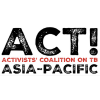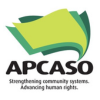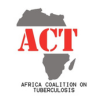Community leadership is broadly recognized as central to effective responses to outbreaks, epidemics, and pandemics. Lessons from the Coronavirus 2019 (COVID-19) pandemic repeatedly stress the need for inclusive, people and community-centered approaches to preparedness and response and the vital role played by local actors, affected communities, and civil society. This includes bold efforts to strengthen health systems, shore up social protections, protect economic opportunities, bolster multilateral collaboration, and enhance social cohesion. Consistent engagement of affected communities is essential to understand local contexts and ensure an informed pandemic response. Without meaningful community participation, misinformation, confusion, and mistrust can undermine the uptake of life-saving services.
Robust, meaningful community engagement in public health planning, service delivery, and health-focused accountability work can make communities and countries healthier and stronger. Communities experience the daily impacts of intersecting gender, human rights and health inequalities. They possess invaluable insight and expertise on problems as well as lasting, locally relevant solutions to both routine and emergency public health responses. Successful pandemic preparedness and response (PPR) efforts depend on community engagement. Experts suggest conceptualizing community infrastructure for PPR under three domains: (1) services and accountability led by communities, (2) state-sponsored activities in communities, and (3) the engagement of communities.
This scorecard is designed to be used by communities and civil society who care about and are working on country and community-level PPR. This tool can be used at baseline, mid-term or endline of a process or program. It can help support project planning as well as evaluation. The scorecard may also support communities to engage in national PPR policy, planning, and review, as a civil society shadow report.
Communities and civil society may engage national PPR stakeholders to secure buy-in for the scorecard, including commitments to supply information, review evidence and discuss action steps. In situations where national stakeholders are not receptive to this approach, communities and civil society can use the scorecard process to highlight barriers, challenges and successes to build on, including through public dissemination meetings, media engagement and regional or international platforms.
DOWNLOAD THE COMMUNITY PANDEMIC PREPAREDNESS AND RESPONSE TOOL HERE.




